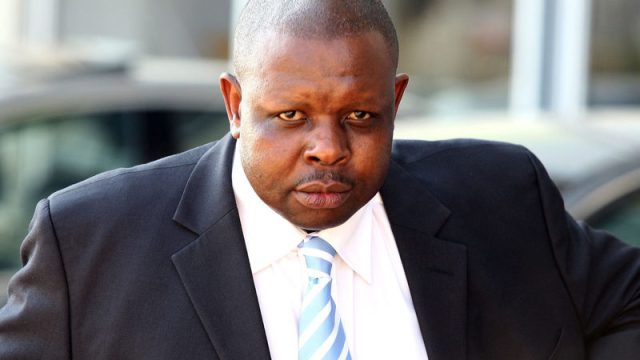

More than 15 years after he was accused of trying to persuade justices of the apex court to pervert rulings in favour of Jacob Zuma, the National Assembly on Wednesday voted to remove Western Cape judge president John Hlophe from the bench.
MPs approved a report from the portfolio committee on justice recommending his removal by 27 against 305 in favour, before starting a separate, fractious debate about the removal of Justice Nkola Motata who crashed, drunkenly, into a garden wall in 2007.
They are the first judges to suffer this fate in post-apartheid South Africa, and many observers in the legal field have opined that the time these two cases took to draw to conclusion points to weaknesses in the mechanisms for holding members of the judiciary to the codes of conduct of the profession.
The vote came just hours after the Western Cape high court dismissed Hlophe’s last-ditch attempt to delay the vote, and inevitable impeachment.
On Monday last week, Hlophe filed an urgent application to the court asking that the impeachment proceedings be put on hold pending an application he made to the constitutional court last month to set aside the report filed by the portfolio committee in November and its recommendation that he be removed from the bench.
He argued in papers to the apex court that the committee acted unconstitutionally by merely rubber-stamping the decision by the decision of the Judicial Service Commission (JSC). Its remit, he continued, was rather to review the merits of the decision. He argued that it was unfair.
The application was dismissed by Judge Sulet Potterill, who is a member of the Gauteng bench and heard the matter because of Hlophe’s obvious connection to the judges of the division over which he presided.
Potterill faulted Hlophe for self-created urgency, noting that his application to the highest court was not structured to include an urgent interdict, though that might have been logical.
Hlophe argued that parliament’s duty was to revisit the decision and to adopt rules for a process to impeach judges. But he did not lodge that application on an urgent basis. At the time of the parliamentary vote, the constitutional court had yet to issue directions on the matter.
He previously sought, in the Gauteng high court, to overturn the JSC finding that he had committed gross misconduct and should face impeachment. The finding landed in August 2021.
A review application on Hlophe’s part failed.
The high court said several of Hlophe’s attacks on the validity of that finding were not review grounds but rather “claims that a disappointed litigant may offer in an appeal”, along the lines that a decision is against the weight of evidence.
“Such grievances do not warrant attention by this court.”
The vote on Motata’s impeachment was still ongoing late on Wednesday.
There was 15 years of legal to and fro before the first judge in post-apartheid South Africa was impeached





